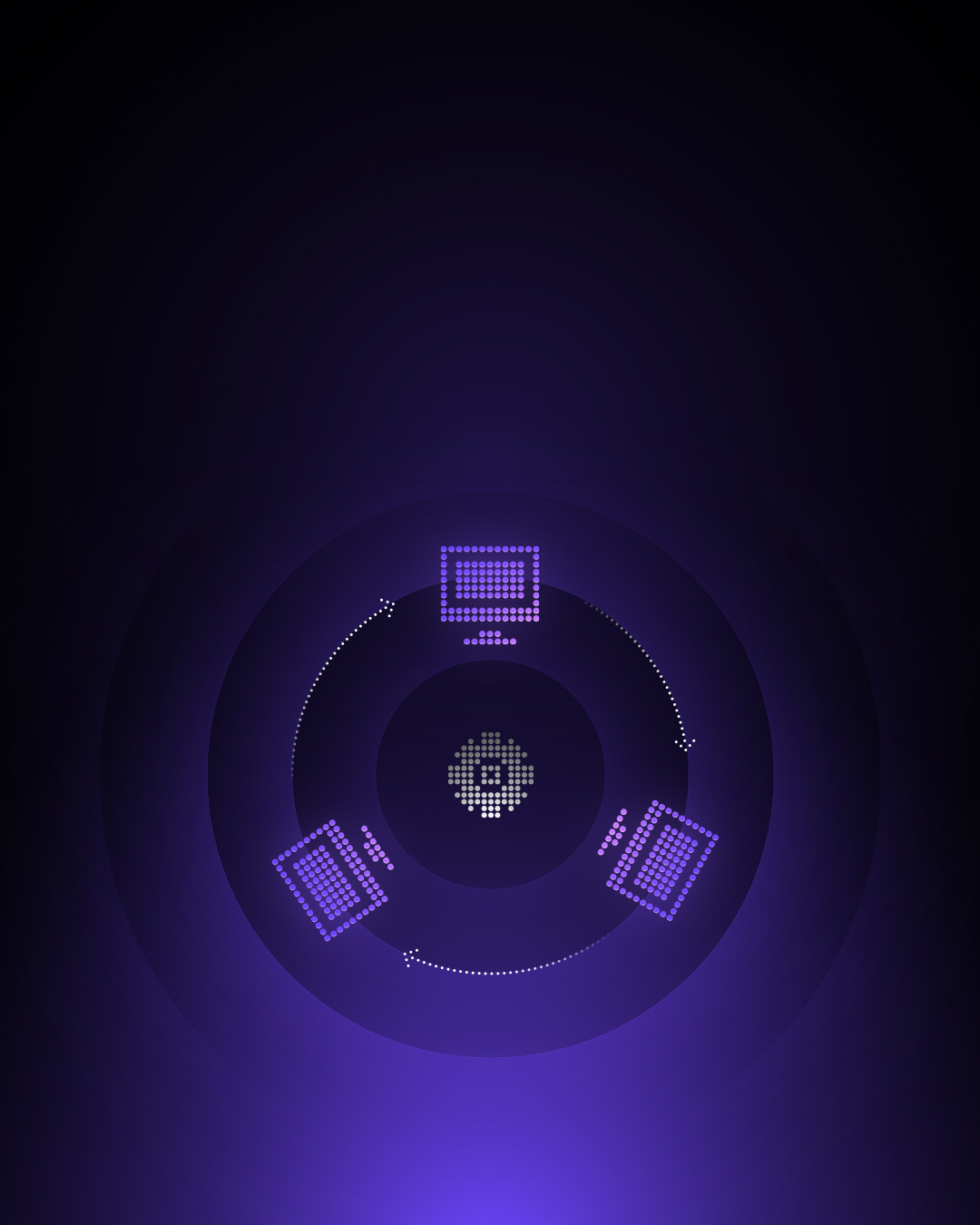
Redefining DeFi With On-Chain Dark Pools
Dark pools are private exchanges or trading platforms allowing large trades to be executed without revealing any details of the trades. Over 60 dark pools are currently registered with the SEC, and according to the Nasdaq, approximately 40% of daily U.S. trade takes place in dark pools.
This is a vast market that is arriving on-chain and presents an enormous opportunity for developers keen on building.
In this article, we will cover:
- Dark Pools: An overview of dark pools and how they operate, as well as their core advantages.
- Web3 Dark Pools: Why dark pools are a natural fit for Web3 and should be on the radar of every developer.
- Building with Arcium: How Arcium’s MPC infrastructure makes it easy for developers to create scalable, encrypted applications such as dark pools.
What are Dark Pools?
Developed in the 1960s, dark pools have since provided a way to limit potential issues caused by large public trades.
For example, if a major investor were to sell a large quantity of stock publicly, it could cause the stock price to drop significantly. Alternatively, another party might see the impending trade and quickly sell their stocks ahead of them (known as “front-running”). Dark pools instead provide confidentiality and minimize any potential for market manipulation or sizeable market fluctuations.
The primary benefits include:
- Confidentiality: They minimize the risk of market manipulation by concealing the identity and trade intentions of participants.
- Price Stability: They allow large trades to be executed without revealing order details to the public, preventing drastic price fluctuations. This shields the market from sudden volatility caused by large buy or sell orders, and allows institutional investors to enter or exit positions without significantly affecting asset valuations.
- Efficient Execution: Dark pools often offer faster and more efficient trade execution for large orders compared to public exchanges. This means that trade prices can be locked in and it minimizes the risk of delayed transactions.
How do they work?
Typically, it’s major firms like Morgan Stanley or Goldman Sachs operate them by creating a dark pool and then matching buy and sell orders within the pool.
When a client places an order, the firm finds a counterparty within the pool, and the trade is executed anonymously without revealing any trade details. The firm essentially acts as an intermediary, managing the liquidity and ensuring the transaction goes through. This structure allows large trades to happen without impacting the public market, reducing the likelihood of price fluctuations or front-running by other market participants.
However, dark pools require trust in these institutions which has been repeatedly broken. Some noteworthy events include:
- Credit Suiss being fined $84.3M for alerting high-frequency trading firms of confidential orders.
- Barclays being fined $70M for allowing predatory trading to occur within its pool.
- Merrill Lynch being fined $42M for sending customer orders externally while saying they were done in-house.
- Citigroup being fined $12M for allowing two high-frequency trading firms to trade in the dark pool while claiming the opposite.

Dark pools are a natural fit for Web3 and represent one of the most exciting opportunities for developers.
By eliminating the risk of manipulation, tapping into massive amounts of pre-existing liquidity, and enabling the creation of new financial products, Web3 dark pools offer a decentralized, trustless solution that is primed to revolutionize institutional trading on-chain.
Dark Pools in Web3
Web3 dark pools are the next natural step in decentralized finance, as institutions increasingly move on-chain and real-world assets (RWAs) become increasingly tokenized. Web3 dark pools, unlike their Web2 counterparts, provide built-in privacy, transparency, and trustlessness. In turn, this eliminates the need for institutions like Morgan Stanley or Goldman Sachs, who have historically manipulated the system.
Key benefits include:
- Improved Pricing: Large on-chain trades are often vulnerable to slippage and front-running, as well as price manipulation techniques like sandwich attacks. Web3 dark pools mitigate these risks by keeping trade details private until execution, ensuring better price protection and stability for users.
- New DeFi Primitives: The composability and interoperability of blockchain technology unlock entirely new DeFi products and ecosystems. Developers can build novel financial solutions that leverage the privacy and flexibility of dark pools while connecting seamlessly to the broader DeFi landscape.
- Reduced Price Impact: Large trades are typically visible on-chain, leading to market reactions, price impact, and value extraction by bots. Web3 dark pools allow institutions and traders to execute high-volume transactions without any risk of negative market externalities.
- Trustless Execution: Unlike Web2 dark pools, which rely on centralized entities that have repeatedly breached trust, Web3 dark pools are governed by smart contracts and decentralized protocols. This ensures that no single entity can manipulate or decrypt trade orders.

There is already immense daily trading volume, especially in Solana, where Arcium’s technology is natively integrated.
On Solana alone, Jupiter has surpassed $240 million in spot trading volume, while Raydium has surpassed $2.1 billion. Any of this volume, as well as that from other Solana projects, can be routed through projects built with Arcium’s technology, enabling privacy and security while accessing deep liquidity.
Simplifying Dark Pool Development with Arcium
Despite how few on-chain dark pools are in existence, they’re surprisingly easy to build with the right encryption tools.
Arcium’s Multi-Party Computation (MPC) infrastructure is a core enabler of Decentralized Confidential Computing (DeCC) and makes it easy for developers to build scalable, encrypted applications such as dark pools.
Arcis is Arcium’s Rust-based programming language that simplifies the creation of MPC-based solutions like dark pools.
Key Advantages of building dark pools with Arcium include:
- Deep Solana Liquidity: Dark pools can be built directly on Solana, which has significant users and liquidity and has interoperability with external networks through bridge partners like Wormhole.
- Flexible Encryption: Developers have full flexibility in how they design dark pools. This could include choosing which aspects to encrypt (only orders? Algorithms as well? etc), offering different security and latency options for different trades or users, and more.
- Major Scalability: Arcium uses dedicated MPC environments called MXEs (Multi-Party eXecution Environments) that enable parallel processing. This means computations can be compartmentalized and handled independently, supporting large trading volume increases.
- Network Routing: Dark pools built using Arcium’s MPC can interact directly with the broader Solana ecosystem, meaning that Jupiter’s $240M+ in spot trading volume or Raydium’s $230M can be routed through the dark pool.
All of this is while inheriting full confidentiality, trustless execution, and fault tolerance through Arcium’s unique architecture, which we covered here.
The future is encrypted!
As institutional players and capital increasingly migrate on-chain, DeFi is poised for a significant influx of funds, bringing TradFi primitives like dark pools, derivatives, and RWAs into the decentralized ecosystem.
Dark pools, in particular, represent a groundbreaking opportunity for developers, given their potential to leverage blockchain's inherent transparency while addressing the underdeveloped state of on-chain solutions.
With Arcium’s advanced MPC infrastructure and Arcis, a Rust-based programming language, developers have the tools they need to seamlessly build scalable, trustless, and decentralized dark pools. Arcium simplifies the complexities of creating secure, trustless financial applications while tapping into deep liquidity and enabling next-generation DeFi products.
To join the movement and start building with Arcium today, reach out via our Discord.
.svg)










.svg)




.svg)
























.jpg)





.jpg)

